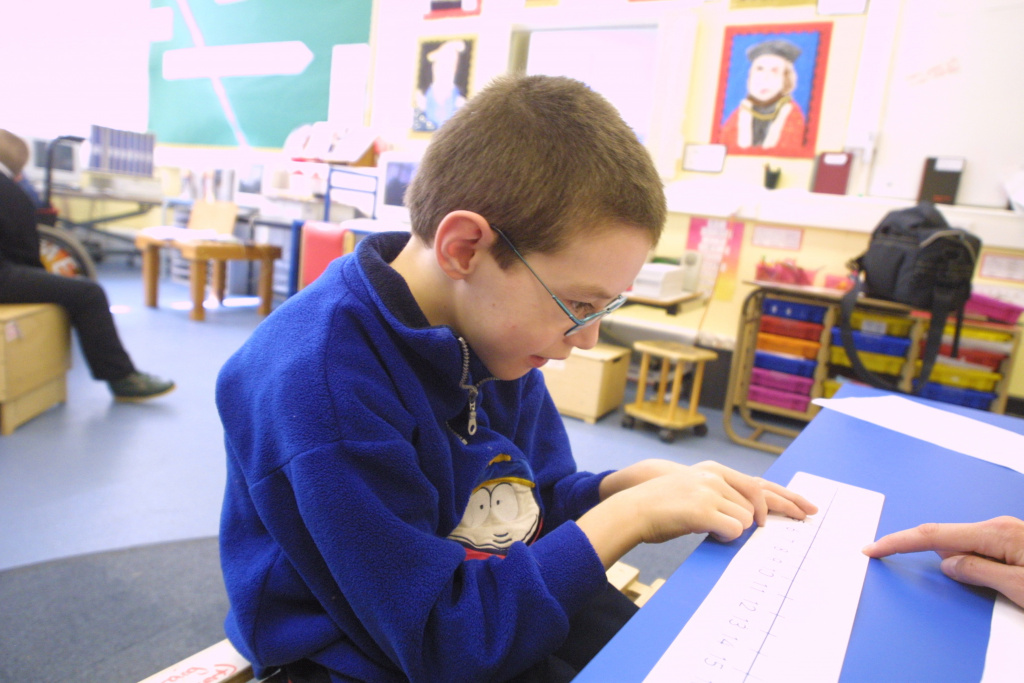
During the summer term, the COVID-19 pandemic catapulted educators across all phases of education in delivering the entirety of their programmes digitally with the majority of students studying remotely. The exception being children and young people with Education Health and Care Plans (EHCPs), and those considered by their schools to require additional special educational needs support.
The reality at this time is that there were a significant number of children and young people identified with special educational needs and disabilities (SEND) who did not attend school between March and July.
‘Strange, challenging, unprecedented’ are words that have been used to describe this period, difficult enough to understand for those who do not have any diagnosed needs.
In some settings, there were reports of students engaging and learning with the remote approach more than during face to face lessons. In others, there was real concern over equity in terms of engagement and access[1] with as low as 16% of disadvantaged students engaging in learning.
There were also reports of the disengagement of a significant number of young people because of a lack of equipment, variable connectivity, and space, but also because the approach and resources provided were a challenge to them[2]. In addition, there were reports indicating that the lockdown was impacting on both students and educator’s mental health and wellbeing[3].
On return to school in year group bubbles, the school day remains short, less differentiated, and challenging for all teachers[4]. The reality of non-attendance in the summer, the delay in restarting schools for all children, and the ongoing impact of COVID-19 on school closures in the autumn is captured by the NFER[5].
For some children and young people identified with SEND there has been an improvement in the amount of contact between schools and parents through this period although parents do not feel this is enough.
The evidence
Evidence is mixed here. Where schools have adopted a fully inclusive approach 100% of families in their communities have been contacted, with the inevitable positive results. Parents, carers, siblings, and extended family members have embraced learning, supporting students with their range of life experience and learning. In contrast, the SEND Jungle survey[6] found that 75% of schools had not completed a SEND risk assessment through this period.
Only 16% of parents felt the work they received was appropriate to their child’s learning need. 34% reported increased anxiety. The Education Policy Institute[7] reported that they had concerns about off rolling and exclusion rates as schools reopened and asked for some clear guidance from government. It is well known the importance of early year’s provision in enabling the best possible start especially for more disadvantaged families. 34% of providers did not expect they could survive into next year. In more affluent areas only 24% felt they were at risk.
As CEO of a third sector organisation, our priority is to provide a form of support and infrastructure that supports professionals at a time when we need to develop the ability to step into the world of vulnerable children and young people. Our research found that impactful Achievement for All partner schools developed staff and student agency and expertise framed by four pillars[8]: This approach would build capacity in all schools and settings.
Pillar 1: Parents’ and carers’ engagement in a child’s learning is an important factor in improving their outcomes and achievements. Parent and carer engagement that removes barriers to learning can drive forward pupils’ perseverance, motivation to learn, and confidence. As schools return continue with increased disruption it is important to build on the enhanced communication with parents and find strategies for more systematic enhancement.
Pillar 2: Provision for closing the gap by developing quality-first teaching through well-differentiated planning, personalised provision and interventions. This will lead to securing the greatest impact on pupil outcomes and support, review and refine provision for vulnerable and disadvantaged pupils that ensures accelerated progress, narrowing the attainment gaps within the school against national outcomes. Intervention and small group catch up should be integrated into the main provision by providing the support that enables even the most challenged to be included daily.
Have we got the courage, the support, the ideas and the tools to re-ignite learning, re-motivate learners and re-engage with (the hardest-to-reach) families? Do we need to do something different? Do we need to change curriculum intent and implementation to have a different impact? Ofsted’s new inspection framework[9] supports such ambition if INTENT – IMPLEMENTATION and IMPACT align.
Pillar 3: Building core strength and resilience for all by helping vulnerable children and young people to identify and reach their goals and ambitions, by building on the latest neuroscience and psychological research as effective strategies to improve cognitive, non-cognitive development (essential life skills) as well as resilience and self-efficacy.
Pillar 4: Digital skills: technology is opening new frontiers in terms of accelerating learning and personalising the education experience Increased understanding of virtual and blended learning in each education setting would transform the progress of all learners.
The next issue of Every Child Journal ( available through TeachingTimes) explores many aspects of inclusion, from digital learning through to a case study of an international play- based learning programme. We trust the articles will inspire your thinking and practice in these challenging times.
For further information contact sonia.blandford@afaeducation.org
Sonia Blandford is the founder and director of the charity Achievement For All
[1] https://writix.co.uk/wp-content/uploads/2021/11/COVID-19-Impact-Brief-School-Shutdown.pdf
[2] https://www.nfer.ac.uk/schools-responses-to-covid-19-pupil-engagement-in-remote-learning/
[3] https://www.rcpch.ac.uk/resources/covid-19-research-studies-children-young-peoples-views
[4] Chartered College of Teaching, September 2020
[5] https://www.nfer.ac.uk/schools-responses-to-covid-19-the-challenges-facing-schools-and-pupils-in-september-2020/
[6] https://www.sendgateway.org.uk/r/special-needs-jungle-a-survey-on-coronavirus-and-send-education.html
[7] https://epi.org.uk/publications-and-research/disadvantage-gap-covid-19/
[8] Achievement for All – www.afaeducation.org
[9] https://www.gov.uk/government/collections/education-inspection-framework
Register for free
No Credit Card required
- Register for free
- Free TeachingTimes Report every month